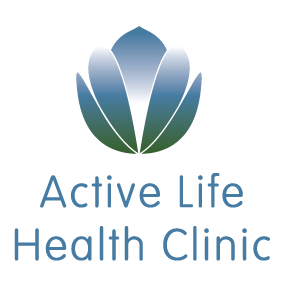New Proposal By Health Canada That Will Impact Your Natural Health Products and TCM Herbs
Do you take vitamins, minerals, herbs, probiotics, essential fatty acids like fish or flax oil, or herbal remedies from me? Well, then you might want to read on and learn why you need to take action as well as what action steps you can take.
Otherwise, be prepared to pay more $$$ and have less access to your natural health products (NHPs).
Health Canada’s Natural and Non-Prescription Health Products Directorate (NNHPD) is proposing new fees on natural health products (NHPs) with a Natural Product Number (NPN). That includes, of course, the supplements, vitamins, minerals, and herbals you’ll find on stores shelves, but also our TCM herbal formulas and concentrated single herbs.
That’s right, there is no distinction between natural health products you pick off the store shelf yourself and the natural remedies prescribed to you by your regulated healthcare provider in Canada.
Canadian companies with a site license as a manufacturer, packager, labeller, or importer will have to pay an annual fee—called a Right To Sell (RTS)—of $542 for every single product with an NPN. For my TCM herbs distributors, if they chose to keep the products that they currently carry, this would cost them $200,000 to $500,000 EXTRA per year because of the number of herbs practitioners need access to. There are also new Product License Application (PLA) and Site License Application (SLA) fees. For “novel” products (e.g., new ingredient, not new ingredient but new combination of ingredients, new use of ingredient), the fee for a PLA will be nearly $60,000!
Why This Matters
With the increase in annual fees ranging from thousands to hundreds of thousands of dollars for Canadian companies that provide your natural health products, this will either increase the price of the products you rely upon, decrease the number of products available to you, or both. Your regulated health professionals like your registered TCM doctor, practitioner, or herbalist is going to have access to fewer herbs when trying to prescribe the best options for your health. If there’s an herb that isn’t commonly used, even though it’s very useful and may be hard to substitute for, it is likely to become no longer available at our usual distributors.
Background
Health Canada has been pushing the direction of regulating natural health products under the same category as pharmaceuticals since the 1990s. The Canadian public retaliated and in 1998, a Report of the Standing Committee on Health found that:
- “Many witnesses asserted that the existing level of expertise and experience within Health Canada was insufficient to review NHPs for approval for sale on the Canadian market or to ensure appropriate post-market surveillance. They explained that, although employees of the department may have attempted to learn about NHPs, they do not fully understand either how these products work or the philosophical and cultural background behind them. A number of witnesses even suggested that some personnel at the department were openly hostile toward natural health and that they exercised their authority in an overtly partisan way.”
- “The Committee heard repeatedly that there were no reported deaths due to the consumption of vitamins, minerals, homeopathic preparations or traditional herbal remedies.” and
“The level of regulation should be consistent with the level of safety associated with a particular product.”
While Health Canada was pushing to regulate NHPs under the same category as pharmaceuticals, public outcry resulted in NHPs being fitted into a third category, not food and not pharmaceutical.
So, Are Natural Health Products Regulated?
Yes.
There are a lot of steps for each NHP to make it to the shelf of your local store, online Canadian provider, or regulated health professional’s office. Check it out, if you’re your interested and have a lot of time on your hands.
In 2004, all NHPs sold in Canada became subject to the Natural Health Products Regulations, which included applying for, paying a fee for, and receiving a product license, which is either an NPN or DIN-HM. Every Canadian manufacturer, packaging, labelling, and importer of NHPs also became mandated to have a site license, also with a fee. To receive these product and site licenses, many requirements have had to be met, including good manufacturing practices (GMP) and evidence given for safety and efficacy. Strict guidelines are also given for what can be written on labels and for claims made.
NHPs include:
- Vitamins and minerals
- Herbal remedies
- Homeopathic medicines
- Traditional medicines, such as traditional Chinese medicines, Ayurvedic medicines, etc.
- Probiotics
- Other products like amino acids and essential fatty acids
- Also, some products like sunscreens, toothpaste, lotions that contain natural health product ingredients
Further, Health Canada at some point (I can’t find a date), changed the regulatory body from NHPD to NNHPD. So, what’s with the extra N? That’s because they added non-prescription drugs–meaning over-the-counter (OTC) drugs like Tylenol (acetaminophen), Advil (ibuprofen) and other NSAIDs (non-steroidal anti-inflammatory drugs), and dextromethorphan-containing cough syrups. These medications carry MUCH higher risk profiles. There are about 4500 hospitalizations (700 due to unintentional or accidental overdose) every year in Canada due to acetaminophen alone.
Proposed Changes
In 2014, the Protecting Canadians from Unsafe Drugs Act (commonly known as Vanessa’s Law) amended the Food and Drugs Act to increase the regulation of therapeutic products and mandate the reporting of adverse reactions by healthcare institutions. The Liberal government added a sneaky little section into their 2023 budget that, as part of Bill C-47, has NHPs fall under this same Unsafe Drugs Act. This, even though Health Canada already has adverse reaction report requirements for NHPs and has the current power to seize, stop sales, cancel and suspend licenses of NHPs.
This new proposal was put forth by our Federal government and named a “cost recovery” for Health Canada’s regulation of NHPs. They plan on increasing the oversight on NHPs, increasing monitoring of labels and advertising, strengthening compliance and enforcement activities, and improving labelling. The latter issue of labelling is already in process and will require many NHPs to change their labels, which will be another considerable expense. In other words, they will be recovering costs for expenses that they will create to regulate an industry that is already well regulated. As stated in the Canadian government’s own document from 2014: “Canada produces a wide range of functional foods and natural health products that rank among the world’s best in terms of quality, nutrition, taste and scientific research.”
Health Canada is saying they will provide lower fees for small businesses—25% off site license and right to sell fees—but these added costs will still leave many of these businesses floundering and consumers unable to afford the products they rely upon, particularly in a time when many are still recovering from the effects of the pandemic and from current inflation. Not to mention that our healthcare system is in crisis with too few medical physicians and healthcare hospital staff across the country.
Health Canada says they are improving healthcare in Canada with these new proposed regulations. They say they are improving access to safe products in Canada. Do you agree? I certainly do NOT.
Action steps:
We have until August 10, 2023 to try to stop this proposal from passing.
What can you do?
- The most helpful and effective step you can take is to call your MP to voice your concern. If you can set up a meeting with them, that is even better. Tell your MP that you appreciate that the “cost recovery” plan is being put forth under the heading of safety, but that you are an informed consumer who wants to continue to have affordable access to your healthcare products. You may also tell your MP that your regulated, registered natural healthcare professional (e.g., Dr.TCM, R.TCM.P, R.TCM.H, ND) needs to continue to be able to supply you with their best professional advice and access to remedies that help you stay healthy. This new proposal set to be discussed and planning on being passed by the House of Commons is already leaving Canadian manufacturers and distributors assessing which products they may have to drop.
You can use this website to find your local MP: https://www.ourcommons.ca/members/en/search
- Spread the news to your friends and family. Ask them to voice their concerns to their MPs. The more our politicians hear from the voters, the more they have to listen.
- Though letters and petitions hold much less weight in bringing about change, the approach we take, can be multifaceted. Write a letter to your MP, local politicians, and our newly appointed federal Minister of Health, the Honourable Mark Holland.
- There is an MP-backed petition that actually can hold weight, so add your name to this petition: https://petitions.ourcommons.ca/en/Petition/Details?Petition=e-4474&fbclid=IwAR12OGri_t_p3CQMjgpjgpHOZmwNcD-3Ox-NI0CehFk0_70NGfLDSbO8syk
- The government also has an online form where you can voice your opinion. https://www.canada.ca/en/health-canada/programs/consultation-proposed-fees-natural-health-products.html

